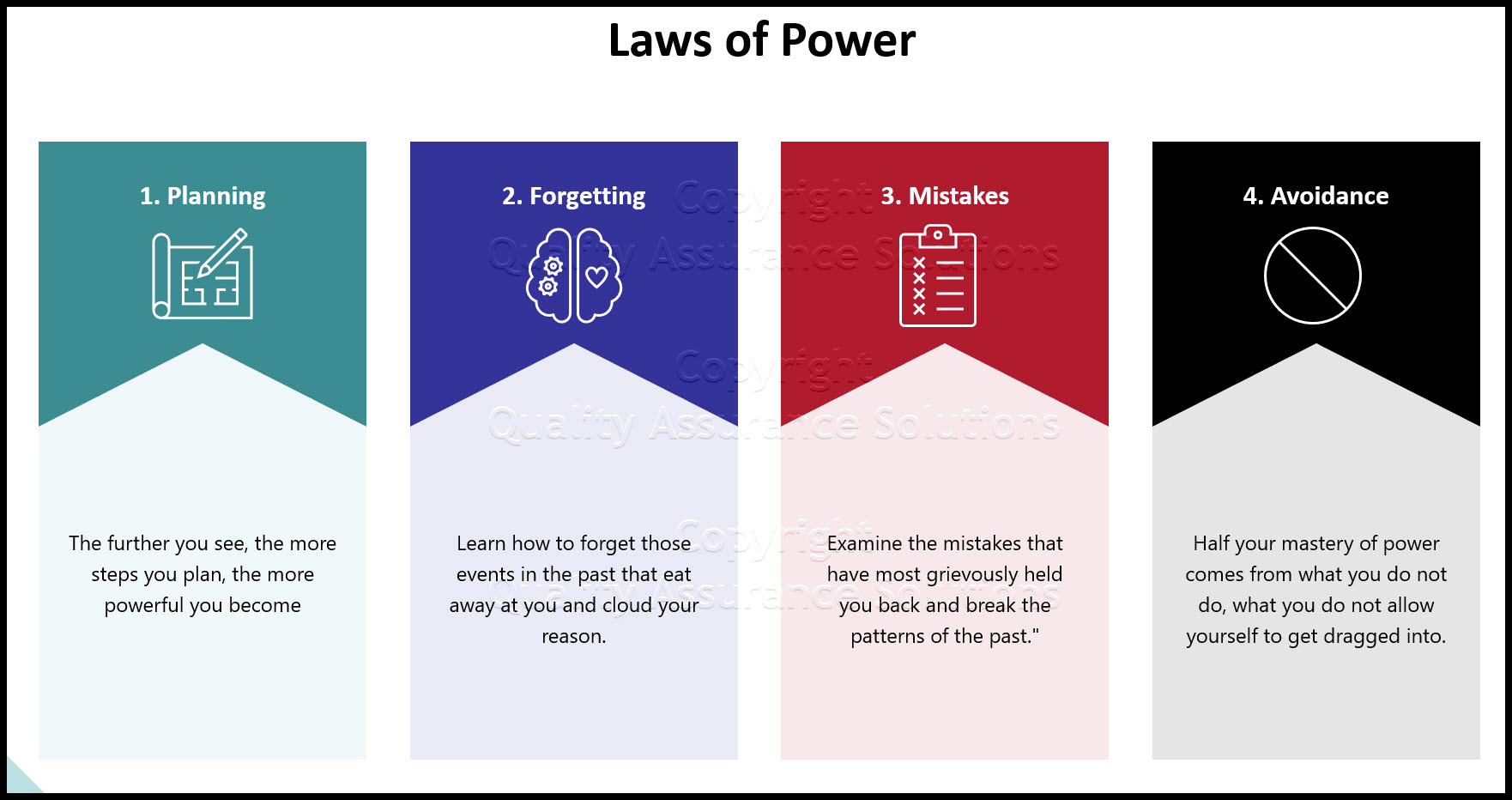

“ The 48 laws of Power Summary” talks on Greene’s behalf to adults, kids, all students, entrepreneurs, workers from different races and power seekers to change their mindset and perception, different mindset would lead them to a more spacious way of thinking that generates happiness and skill.Īs a detail orientated book, Greene hopes that his masterpiece would embark an inner change and awake the“sleeping potential” that exists within a person’s mind. Why start instantly? – Stay with us to find out: With an open mindset, he approaches life, separates ignorance from wisdom and makes the audience aware of the unchanging reality of inner power.

Robert Greene has a tremendous career as being one of those writers who want to share the written word with everyone these authors believe that every human being deserves to have a fair share of the universal knowledge and power. Who Should Read “The 48 Laws of Power”? and Why? This book summary offers a handful of tips and insights to maximize the effectiveness of the whole operation.
#What are 48 laws of power how to
Although Robert is aware of the situation, he invites you to dig deep into learning the basics of how to climb the corporate ladder. “The 48 laws of Power List” gives a brand new explanation of today’s society and all its features. This page uses Creative Commons Licensed content from Wikipedia ( view authors).Forty-eight shrewd, deep, prudent, and detail orientated strategies for generating – and maintaining – power. Do not go past the mark you aimed for in victory, learn when to stop.Preach the need for change, but never reform too much at once.Disarm and infuriate with the mirror effect.Work on the hearts and minds of others.Strike the shepherd and the sheep will scatter.Avoid stepping into a great man's shoes.Think as you like but behave like others.Disdain things you cannot have: Ignoring them is the best revenge.Be royal in your fashion: act like a king to be treated like one.Control the options: get others to play with the cards you deal.Make your accomplishments seem effortless.Play on people's need to believe to create a cult like following.Use the surrender tactic: transform weakness into power.Play a sucker to catch a sucker: play dumber than your mark.Know who you're dealing with do not offend the wrong person.Do not build fortresses to protect yourself.Keep others in suspended terror: cultivate an air of unpredictability.Use absence to increase respect and honor.When asking for help, appeal to people's self-interests, never to their mercy or gratitude.Use selective honesty and generosity to disarm your victim.Infection: avoid the unhappy and unlucky.Win through your actions, never through argument.Make other people come to you use bait if necessary.Get others to do the work for you, but always take the credit.So Much Depends on Reputation – Guard it with your Life.Never put too much trust in friends, learn how to use enemies.

Each law is its own chapter, complete with sub-sections entitled "transgression of the law," "observation of the law," and "reversal." Reversals detail how the laws can be misunderstood or taken to excess, to the detriment of the person seeking to observe them. The book is intended to show people how to gain power, preserve it, and defend themselves against power manipulators. "The 48 Laws of Power" are a distillation of 3,000 years of the history of power, drawing on the lives of strategists and historical figures like Niccolò Machiavelli, Sun Tzu, Carl von Clausewitz, Queen Elizabeth I, Henry Kissinger, P.T. However, at the time Greene was rereading his favorite biography about Julius Caesar and took inspiration from Caesar's decision to cross the Rubicon River and fight Pompey, thus inciting the Roman Civil War. In 1995, Greene worked as a writer at Fabrica, an art and media school, and met a book packager named Joost Elffers.Īlthough Greene was unhappy in his current job, he was comfortable and saw the time needed to write a proper book proposal as too risky. Greene initially formulated some of the ideas in "The 48 Laws of Power" while working as a writer in Hollywood and observing that today's power elite shared similar traits with powerful figures throughout history. "The 48 Laws of Power" (1998) is the first book by American author Robert Greene.


 0 kommentar(er)
0 kommentar(er)
